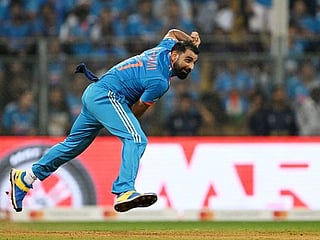Saudi Arabia eyes stake in $30 billion Indian Premier League
The league has drawn a plethora of sponsors, including Aramco and Saudi tourism authority

Riyadh: Saudi Arabia has expressed interest in buying a multibillion-dollar stake in the Indian Premier League, international cricket's most lucrative event, following a string of investments that have upended professional sports including football and golf.
Crown Prince Mohammed bin Salman's advisers have sounded out Indian government officials about moving the IPL into a holding company valued at as much as $30 billion, in which Saudi Arabia would then take a significant stake, people familiar with the matter said. The talks were held when the Crown Prince visited India in September, the people said, asking not to be named as the information is not public.
Under plans discussed at the time, the kingdom proposed investing as much as $5 billion into the league and help lead an expansion into other countries, similar to the English Premier League or the European Champions League, the people said.
While the Saudi government is keen to press on with a deal, the Indian government and the country's cricket regulator BCCI are likely to take a call on the proposal after next year's federal elections, the people said.
Saudi Arabia's powerful sovereign wealth fund, which has anchored many of the kingdom's previous sports investments, could ultimately be the vehicle used to do a deal with the BCCI if an agreement is reached. No final decisions have yet been made.
Representatives for the BCCI and the Saudi government's Center for International Communication didn't respond to requests for comment. The Public Investment Fund also declined to comment.
Since its inception in 2008, the IPL has married American-style marketing with the glitz of Bollywood and the energy of India's vast population.
The league has drawn a plethora of sponsors, including Aramco and the Saudi tourism authority. And despite a season that runs for just eight weeks each spring, bidders last year paid $6.2 billion for the right to broadcast IPL games through 2027. That works out to $15.1 million per match, more than the EPL and just behind the $17 million networks pay for each game in the National Football League in the US.
Sign up for the Daily Briefing
Get the latest news and updates straight to your inbox







